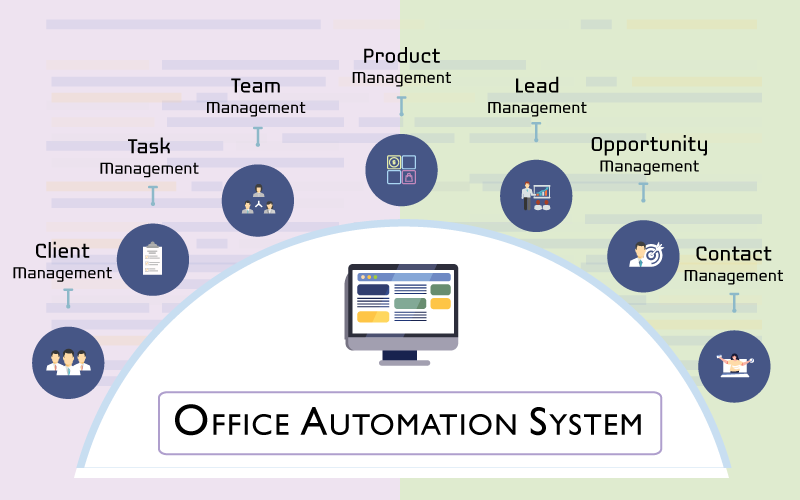In today’s fast-paced world, technology has become an indispensable tool for businesses of all sizes. Churches, too, can significantly benefit from embracing automation. By streamlining administrative tasks and improving efficiency, church staff can focus more on their core mission: spreading the Gospel. This article will explore how automation can revolutionize church administration and empower ministries to make a greater impact.
The modern church faces numerous administrative challenges. From managing membership records and processing donations to organizing events and communicating with the congregation, these tasks can be time-consuming and resource-intensive. Manual processes often lead to inefficiencies, errors, and a lack of transparency. However, by leveraging technology and embracing automation, churches can overcome these hurdles and create a more streamlined and effective administrative system.
One of the primary benefits of automation is increased efficiency. Repetitive tasks, such as data entry, report generation, and email campaigns, can be automated, freeing up valuable staff time. This allows church staff to focus on more meaningful tasks, such as pastoral care, outreach, and discipleship.
Furthermore, automation can significantly improve organization within the church. Church management software can help organize and manage membership databases, track attendance, and streamline financial processes. This level of organization not only improves efficiency but also enhances transparency and accountability.
Communication is another area where automation can make a significant impact. Automated communication tools, such as email marketing platforms and SMS messaging services, facilitate effective outreach and engagement with the congregation. These tools enable churches to easily send out announcements, reminders, and prayer requests, keeping members informed and connected.
Beyond increased efficiency and improved communication, automation can also lead to significant cost savings. By reducing the need for manual labor and paper-based processes, churches can minimize administrative expenses. This frees up financial resources that can be redirected towards supporting ministry programs and outreach initiatives.
Moreover, automation can provide valuable data and insights that can inform strategic decision-making. Church management software can generate reports on attendance, giving, and volunteer participation, providing valuable data that can help church leaders identify areas for growth and improvement.
Several key areas within church administration can benefit significantly from automation.
Membership Management: Automating membership management tasks, such as tracking attendance, managing donations, and sending out newsletters, can save time and streamline processes.
Financial Management: Church accounting software can automate tasks like invoicing, payment processing, and financial reporting, improving accuracy and efficiency.
Volunteer Management: Automation tools can help manage volunteer schedules, track volunteer hours, and facilitate communication with volunteers, ensuring that volunteers are effectively utilized and appreciated.
Event Planning: Church event planning software can automate tasks like registration, ticket sales, and event promotion, making it easier to plan and execute successful events.
Communication: Email marketing and SMS messaging tools can be used to send out announcements, reminders, and prayer requests, keeping the congregation informed and engaged.
When selecting automation tools, churches should consider several factors.
User Friendliness: The tools should be easy to learn and use, even for those who are not tech-savvy.
Scalability: The tools should be able to grow with the church as it expands, accommodating increasing membership and more complex needs.
Integration Capabilities: The tools should be able to integrate with other software systems, such as accounting software and other church management tools, to create a seamless and efficient workflow.
Cost-Effectiveness: The tools should be affordable and offer a good return on investment.
Successfully implementing automation in a church requires careful planning and execution.
Assess Your Needs: Begin by identifying the areas of your church administration that could benefit most from automation.
Research Automation Tools: Explore different automation tools and software solutions that fit your church’s specific needs and budget.
Train Your Staff: Provide comprehensive training to your staff on how to use the new automation tools effectively.
Start Small: Begin by automating simple tasks and gradually increase the scope of automation as your staff becomes more comfortable with the new technology.
Monitor and Evaluate: Regularly monitor the performance of your automation tools and make adjustments as needed.
By embracing automation, churches can free up valuable time and resources to focus on their core mission. By streamlining administrative tasks, church staff can spend more time connecting with the congregation, planning impactful ministries, and sharing the love of Christ.
In conclusion, automation offers significant benefits for churches seeking to improve efficiency, enhance organization, and strengthen their impact. By embracing technology and implementing the right automation tools, churches can streamline their administrative processes, reduce costs, and ultimately focus more on their core mission of serving God and their community.


Leave a Reply